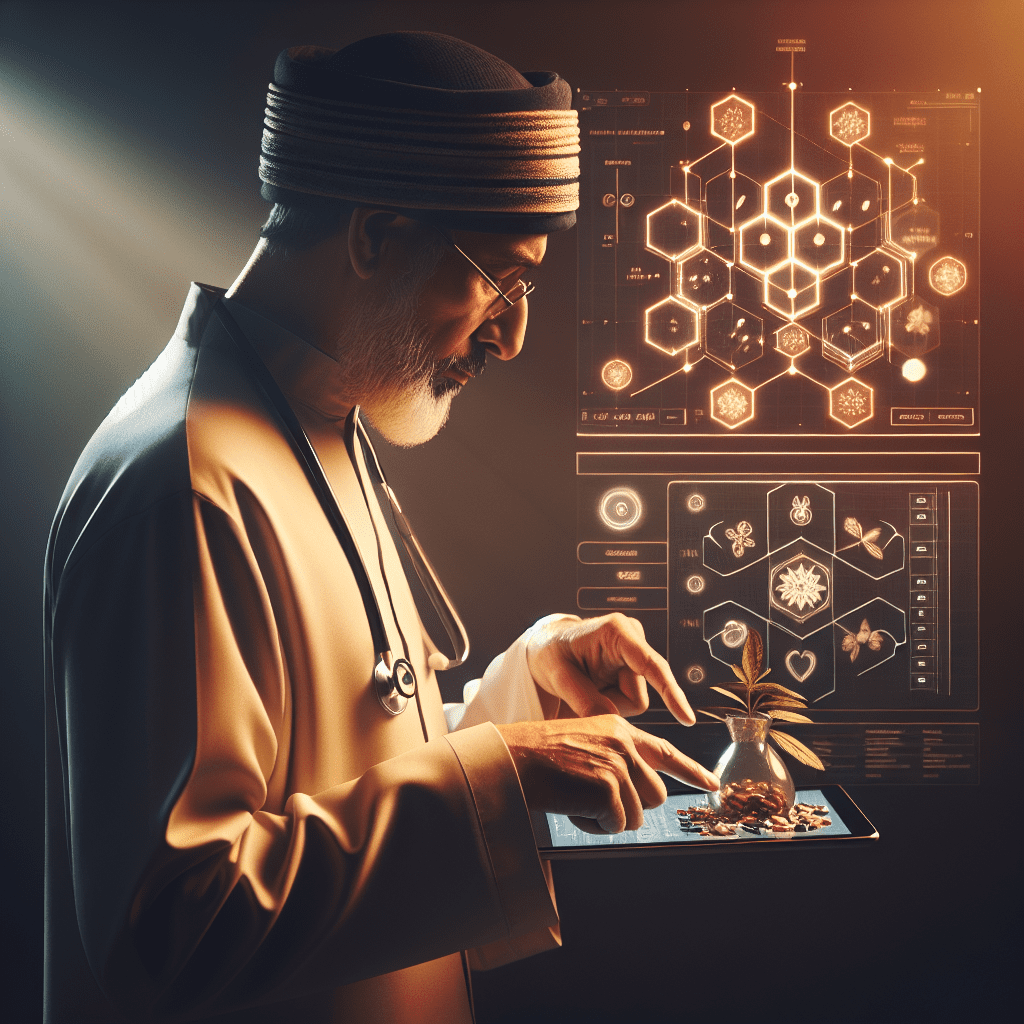In a world where quick-fix medications often dominate healthcare conversations, more people are turning to alternative medicine approaches that honor the body’s innate healing wisdom. These diverse practices—ranging from ancient energy work to plant-based remedies—offer pathways to wellness that extend beyond simply managing symptoms. Instead, they embrace the whole person: body, mind, and spirit.
Alternative medicine isn’t just gaining momentum among fringe health enthusiasts. Today, health-conscious individuals everywhere are exploring these modalities as they seek more natural, holistic approaches to their wellbeing. The appeal lies in alternative medicine’s core philosophy: that our bodies possess remarkable self-healing capabilities when properly supported through energy alignment, herbal supplementation, mindful practices, and other natural interventions.
As interest grows, so does the evidence supporting many of these best alternative medicine approaches. Let’s explore this fascinating landscape where traditional wisdom meets modern science, and discover how these practices might complement your health journey.
Understanding Alternative Medicine: A Spectrum of Healing Practices
Alternative medicine encompasses a wide range of healing modalities that operate outside conventional Western medical practice. What unites these diverse approaches is their holistic perspective—viewing health as a complex interplay between physical, emotional, mental, and spiritual wellbeing.
Acupuncture: Ancient Energy Medicine with Modern Validation
Acupuncture, a cornerstone of Traditional Chinese Medicine for over 2,500 years, involves the strategic placement of thin needles at specific points along the body’s energy pathways or “meridians.” This practice aims to rebalance the flow of qi (vital energy) and stimulate the body’s natural healing mechanisms.
Modern research increasingly validates what practitioners have long observed: acupuncture effectively addresses various conditions, particularly pain management. The National Institutes of Health acknowledges acupuncture’s efficacy for conditions like chronic back pain, migraines, and osteoarthritis. By triggering endorphin release and modulating nervous system responses, acupuncture offers a needle-based approach that many find surprisingly gentle and profoundly relaxing.
Massage Therapy: More Than Just Relaxation
While often associated with luxury spa experiences, massage therapy ranks among the best alternative medicine approaches with substantial therapeutic benefits. Different techniques—Swedish, deep tissue, myofascial release, and more—address various health concerns by manipulating soft tissues.
Beyond stress reduction and relaxation, massage therapy can relieve muscle tension, improve circulation, enhance lymphatic drainage, and even benefit digestive function. The power of therapeutic touch not only addresses physical discomfort but also nurtures the mind-body connection that’s central to holistic healing philosophies.
Herbal Medicine: Nature’s Pharmacy
Herbal medicine represents one of humanity’s oldest healing traditions, utilizing plant-based remedies to prevent and treat illness. From Chinese herbal formulations to European botanical traditions and indigenous plant knowledge, these approaches recognize plants as powerful medicine rather than mere supplements.
Herbs like turmeric, ginger, echinacea, and countless others contain bioactive compounds that can modulate inflammation, support immune function, and address specific health concerns. Modern pharmacology continues to validate many traditional herbal applications, highlighting how these natural remedies can offer gentler alternatives or complementary supports to pharmaceutical interventions.
Meditation and Mindfulness: Mental Medicine
The practices of meditation and mindfulness represent some of the most accessible yet profound alternative medicine approaches. These contemplative techniques train attention and awareness, creating beneficial changes in brain function and stress physiology.
Regular meditation practice has been linked to reduced anxiety and depression, improved focus, better stress management, and even changes in gene expression related to inflammation. As research in psychoneuroimmunology advances, science increasingly confirms what meditators have experienced for millennia: a calm mind supports a healthy body.
Naturopathy: A Comprehensive Natural Approach
Naturopathy integrates multiple alternative medicine modalities within a cohesive philosophy emphasizing prevention, the healing power of nature, and treating root causes rather than symptoms. Naturopathic doctors receive specialized training in clinical nutrition, botanical medicine, homeopathy, physical medicine, and lifestyle counseling.
This approach aligns perfectly with the holistic healing principles found in Eastern medical traditions, focusing on supporting the body’s inherent healing abilities rather than simply suppressing symptoms. Naturopathic care typically involves comprehensive assessment, dietary modifications, targeted supplementation, and personalized lifestyle recommendations.
The Science Behind Alternative Medicine: Research-Backed Benefits
While skeptics sometimes dismiss alternative medicine as lacking scientific foundation, a growing body of research supports many of these practices. Let’s examine some of the best alternative medicine approaches with substantial evidence behind them.
Acupuncture’s Evidence Base
Acupuncture has been extensively studied, with particularly strong evidence for pain management. A 2018 meta-analysis published in the Journal of Pain found acupuncture effective for chronic pain, with benefits persisting up to a year after treatment. Research also shows promise for conditions including chemotherapy-induced nausea, allergic rhinitis, and certain neurological disorders.
The mechanisms behind acupuncture’s effects continue to be elucidated through advanced imaging studies showing how these treatments affect brain activity and neurotransmitter release. Far from being merely placebo effects, acupuncture appears to trigger measurable physiological responses that support healing.
Yoga’s Multi-System Benefits
Yoga represents one of the most thoroughly researched mind-body practices, with studies demonstrating benefits ranging from improved flexibility and strength to reduced stress, better cardiovascular health, and enhanced respiratory function.
A particularly impressive 2017 review in the Journal of Alternative and Complementary Medicine examined 69 studies on yoga’s physiological effects, finding significant improvements in outcomes related to cardiovascular endurance, muscular strength, blood pressure regulation, and pulmonary function. The practice’s combination of physical postures, breathwork, and meditative elements creates a synergistic effect that supports whole-person health.
Herbal Medicine’s Growing Research Base
Research into herbal remedies continues to validate many traditional applications. For example:
– Turmeric’s active compound, curcumin, has demonstrated powerful anti-inflammatory effects comparable to some pharmaceutical anti-inflammatories, but with fewer side effects
- Valerian root has shown efficacy for sleep improvement comparable to certain benzodiazepines, but without the risk of dependency
- St. John’s Wort has been found effective for mild to moderate depression in multiple systematic reviews
As analytical techniques improve, scientists continue to identify the active compounds in traditional remedies and understand their mechanisms of action, bridging ancient wisdom with modern biochemistry.
Meditation’s Measurable Impact
Perhaps no alternative medicine practice has received more scientific attention in recent years than meditation. Functional MRI studies reveal how meditation affects brain structure and function, while other research documents impacts on stress hormones, inflammatory markers, and even cellular aging.
A landmark study from Massachusetts General Hospital demonstrated that just eight weeks of mindfulness meditation produced measurable changes in brain regions associated with memory, self-awareness, and compassion. Simultaneously, areas connected to stress and anxiety showed decreased density. These findings help explain why meditation consistently produces benefits for conditions ranging from anxiety and depression to chronic pain and insomnia.
Integrative Health: Bridging Alternative and Conventional Medicine
Rather than viewing alternative and conventional medicine as opposing approaches, integrative health embraces the best of both worlds. This patient-centered model combines evidence-based conventional treatments with complementary practices to address the whole person: physical, emotional, mental, and spiritual.
The integrative approach acknowledges that no single healing tradition holds all the answers. Instead, it draws from multiple systems to create personalized treatment plans that might include both pharmaceutical interventions and meditation, physical therapy alongside acupuncture, or nutritional counseling with targeted herbal support.
Major medical centers including the Mayo Clinic, Cleveland Clinic, and Johns Hopkins now offer integrative medicine departments, reflecting growing recognition of this approach’s value. These programs typically emphasize:
– Prevention as the best medicine
- The therapeutic relationship as a critical healing factor
- Treatment of root causes rather than just symptoms
- Personalization based on individual needs and preferences
- Less invasive interventions when possible
This integration mirrors the philosophy behind EASTCHI AI, which combines ancient Eastern healing wisdom with modern artificial intelligence to create personalized wellness recommendations. By analyzing individual constitutional types through Five Element Theory and providing seasonal dietary guidance, this approach embodies the essence of integrative health—honoring traditional wisdom while embracing contemporary innovations.
When to Consider Alternative Medicine Approaches
Alternative medicine offers valuable options for many health concerns, but understanding when and how to incorporate these approaches is essential for optimal results.
Complementary Support for Conventional Treatment
For serious acute conditions and medical emergencies, conventional medicine excels. However, alternative approaches can provide valuable support alongside standard care. For example:
- Acupuncture can help manage chemotherapy side effects during cancer treatment
- Mindfulness practices can complement psychiatric care for depression and anxiety
- Massage therapy may enhance recovery after surgery or injury
- Nutritional and herbal support might help mitigate medication side effects
The key is open communication with all healthcare providers about your complete treatment plan to avoid potential interactions and ensure coordinated care.
Preventive Care and Wellness Optimization
Alternative medicine truly shines in prevention and wellness optimization. These approaches often excel at:
– Stress management and resilience building
- Immune system support
- Digestive health optimization
- Sleep quality improvement
- Energy enhancement and fatigue reduction
For those seeking to maintain health rather than simply avoid disease, alternative medicine offers powerful tools that conventional healthcare often overlooks.
Addressing Chronic Conditions
For persistent health challenges that conventional medicine struggles to resolve—such as chronic pain, autoimmune conditions, digestive disorders, and fatigue syndromes—alternative approaches may offer relief through different mechanisms.
These modalities often address underlying imbalances that standard treatments miss, such as subtle nutritional deficiencies, chronic inflammation, stress physiology disturbances, and energy blockages. By taking a more holistic view, they sometimes succeed where more reductionist approaches have failed.
Important Considerations and Precautions
While exploring alternative medicine, keep these important guidelines in mind:
- Always inform all healthcare providers about all treatments you’re pursuing
- Research practitioners thoroughly, seeking appropriate credentials and experience
- Be especially cautious with herbal supplements if taking medications, as interactions can occur
- Don’t abandon necessary conventional treatments without medical consultation
- Approach with particular caution for serious conditions like cancer, heart disease, or diabetes
The best alternative medicine approaches complement rather than replace appropriate conventional care—they expand your options rather than limiting them.
Embracing a Holistic Health Journey
As we’ve explored these best alternative medicine approaches, a common thread emerges: the view of health as more than merely the absence of disease. These practices invite us to participate actively in our wellbeing, honoring the body’s innate healing capacity while providing the conditions for optimal function.
The growing scientific validation of traditional healing practices reminds us that wisdom comes in many forms. The acupuncturist’s understanding of energy meridians, the herbalist’s knowledge of plant medicine, and the meditation teacher’s insights about mind-body connection all offer valuable perspectives on the complex symphony of human health.
By embracing an integrative approach that combines Eastern healing philosophies with modern scientific understanding—as exemplified by HerbalsZen’s EASTCHI AI platform—we can access a more comprehensive toolkit for health optimization. This technology brings ancient wisdom into the digital age, making personalized recommendations based on individual constitutions and needs.
The journey toward optimal health isn’t about choosing between alternative and conventional medicine—it’s about thoughtfully integrating diverse approaches based on evidence, experience, and individual needs. As you explore these options, remember that you are the ultimate authority on your own body and experience. The most powerful medicine often comes when we combine the best scientific innovations with time-tested healing wisdom, creating a truly holistic approach to living well.



